By Erin Venable, Marketing Director, Waco Transit
Thank you, Laura White, for your recent foray into Waco’s public transportation system! Your recent blog post helped shine some light on why a robust public transportation system is so very important for our community.
You are correct in your conclusion that riding the bus can be time-consuming – we would love to increase the number of vehicles we run to decrease the wait and route time. However, until we receive an increase in funding, we are limited in what we can offer. Additionally, we are working hard to serve a rapidly expanding urban area with our already stretched-tight resources. We hope that stories like yours will help raise community awareness and public will to support that much-needed investment.
As for your experience riding our buses, I am sorry it was not as pleasant as it could have been. I want to make sure that you and our other Waco riders know about the services we offer that can help make using our current system easier.
Because we recognize that riding a city bus for the first time (and navigating the routes/time points) can indeed be intimidating, we offer free travel training upon request. In this training we take individuals or groups through the ins and outs of reading a bus map, planning a route, tracking the bus, and actual boarding and disembarking from the vehicle. We work with many local schools, social service organizations, and other community partners to make riding the bus as easy as possible for those who want to take advantage of our system. (If you are interested in arranging such a class for your group or organization, please email Denise Rodriguez at [email protected].)
 Additionally, one new development we recently rolled out is our free GPS app, which allows riders to track the buses as they move along the routes. The Ride Systems app can be downloaded on any smart phone, and users can see the route in its entirety, where the bus is currently, and the expected time of arrival for the main stops along the route. We feel like this has revolutionized the bus riding experience in Waco, and we have been working since our January roll-out to market the fact that this tool is available. (If you would like to track the routes via your desktop computer, please visit www.ridewaco.com .)
Additionally, one new development we recently rolled out is our free GPS app, which allows riders to track the buses as they move along the routes. The Ride Systems app can be downloaded on any smart phone, and users can see the route in its entirety, where the bus is currently, and the expected time of arrival for the main stops along the route. We feel like this has revolutionized the bus riding experience in Waco, and we have been working since our January roll-out to market the fact that this tool is available. (If you would like to track the routes via your desktop computer, please visit www.ridewaco.com .)
We do have some exciting plans in the pipeline that we feel would address many of our current challenges, but we need the public to rally around public transportation and encourage the powers-that-be to increase funding so that we can make needed changes and improve public transportation in this city. While we are thankful to have the support of many city and community leaders, we need citizens to speak up and make their requests known in our Downtown Transportation Study surveys, our MPO meetings, and wherever else you have a voice.
We would love to hear from you! Visit www.wacotransitsystem.com to fill out a Downtown Waco Transportation Study survey.
Also, The Waco Metropolitan Planning Organization (MPO) is in the process of identifying transportation needs for Metropolitan Waco through the year 2040. They have invited all interested people to make their priorities known. You can submit feedback in writing until June 15. Suggestions may be submitted by fax at (254) 750-1605, by e-mail to [email protected] or by mail directed to Christopher Evilia at the following address: Waco Metropolitan Planning Organization, P.O. Box 2570, Waco, Texas 76702-2570. Please take a moment to urge them to make improving public transportation a priority. Transportation is an important issue for all of us!
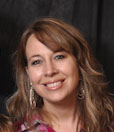 This Act Locally Waco blog post was written by Erin Venable. Erin, a Waco native, is the Marketing Director at Waco Transit. In addition to her work at Waco Transit, she also moonlights as a mother of five (ages 5 – 13) and serves on the Keeping Your Sanity board. Erin and her family are preparing to move to Cameroon via Antioch Ministries International and the Medical Centers of West Africa, where she hopes, among other things, to continue dialoguing about her beliefs and passions. If you would like to write for the Act Locally Waco blog, please contact Ashley Thornton by email at [email protected].
This Act Locally Waco blog post was written by Erin Venable. Erin, a Waco native, is the Marketing Director at Waco Transit. In addition to her work at Waco Transit, she also moonlights as a mother of five (ages 5 – 13) and serves on the Keeping Your Sanity board. Erin and her family are preparing to move to Cameroon via Antioch Ministries International and the Medical Centers of West Africa, where she hopes, among other things, to continue dialoguing about her beliefs and passions. If you would like to write for the Act Locally Waco blog, please contact Ashley Thornton by email at [email protected].
 by Cheryl Allen Resource Coordinator for VOICE
by Cheryl Allen Resource Coordinator for VOICE
I recently began working for VOICE (Viable Options in Community Endeavors), a nonprofit that serves sixteen counties, including McLennan and its neighbors. Before joining the staff, I was aware of VOICE’s existence, but not exactly what they did. Turns out, I was not alone in that lack of knowledge. Several friends and colleagues have asked me to clarify the role that VOICE plays locally. I am happy to explain! Here are six things everyone should know about VOICE:
1. We offer successful programs. – The purpose of VOICE is to strengthen families and help young people lead healthy and productive lives. We offer fourteen programs that approach this goal in a variety of ways. In some programs, such as our Curriculum-based Support Groups and “Project Toward no Drug Abuse,” we work with young people to help them develop the self-control and sound decision-making strategies to resist drugs. We also have programs such as La Voz Para Familia and the Strengthening Families Program in which we work with whole families to create an environment where children and youth can thrive. The Department of State Health Services (DSHS) grants under which we operate require that we use curricula that have been assessed and demonstrated to be effective. For a list of VOICE programs and the counties in which they are offered, click here: VOICE programs.
2. We change lives…lots of lives. – I have seen first-hand the difference that our programs make in individuals, families and communities. Our funding sources require us to be very diligent in reporting who we have reached, how we did it and the outcomes of our efforts. In fiscal year 2013, we touched 25,000 lives in McLennan County alone.
 3. We are an autonomous organization with a successful history. – VOICE began in Corsicana in 1992 as the dream of Lois Hart, a retired educator who was passionate about helping children and youth. This grassroots beginning allows us to be autonomous, and we can tailor our programs to meet the needs of each community that we serve. Because of our successful history, in 2010 we were asked by the Department of State Health Services (DSHS) to include Region 7 (Bosque, Coryell, Falls, Freestone, Hamilton, McLennan and Milam) in our service area.
3. We are an autonomous organization with a successful history. – VOICE began in Corsicana in 1992 as the dream of Lois Hart, a retired educator who was passionate about helping children and youth. This grassroots beginning allows us to be autonomous, and we can tailor our programs to meet the needs of each community that we serve. Because of our successful history, in 2010 we were asked by the Department of State Health Services (DSHS) to include Region 7 (Bosque, Coryell, Falls, Freestone, Hamilton, McLennan and Milam) in our service area.
4. We play well with others. – VOICE’s philosophy is that working with local nonprofits, schools and churches increases the impact that we can make in a community. With that philosophy in mind we actively seek and maintain partnerships. For example, we are very proud that we have recently become a Waco-McLennan County partner agency. Also, we received funding to form the VOICE Against Substance Abuse Coalition (VASA Coalition) to work with stakeholders throughout McClennan County to implement environmental prevention strategies that will reduce the use of alcohol, marijuana and prescription drugs. Please contact me if you would like to learn more about our partnerships or the VASA Coalition.
5. We have funding to accomplish our goals. – In 2013, we received ten five-year grants totaling 2.6 million per year (1.4 million for Region 7). To qualify for the funding, we must raise five percent in matching funds from each region; thankfully, we are allowed to count volunteer hours and in-kind donations as part of that match!
6. We have diverse, dedicated and well-trained staff. – We have twenty-eight program staffers and five administrative employees for our sixteen-county area. Our staff reflects the demographics of the populations that we serve, and we receive extensive training on an ongoing basis.
If you would like to learn more about VOICE, please contact me. I am very excited about the work that we are doing and am more than happy to visit about it! I can be reached by phone at 254-855-2259 or by e-mail at [email protected].
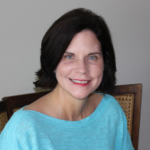 This Act Locally Waco blog post was written by Cheryl Allen. Cheryl has served the community professionally and as a volunteer for many years. She is the Resource Coordinator for VOICE and is an adjunct lecturer in Civic and Community Service at Baylor University. If you would be interested in writing a post for the Act Locally Waco blog, please email [email protected].
This Act Locally Waco blog post was written by Cheryl Allen. Cheryl has served the community professionally and as a volunteer for many years. She is the Resource Coordinator for VOICE and is an adjunct lecturer in Civic and Community Service at Baylor University. If you would be interested in writing a post for the Act Locally Waco blog, please email [email protected].
By Ashley Bean Thornton, Act Locally Waco
My mom was a librarian – or maybe she still is a librarian. She’s retired, but I’m not sure you ever really stop being a librarian. Because she was my school librarian for a while when I was in elementary school I enjoyed a great many advantages. For one thing, there was a limit on how many books children could check out at one time, but since I was the librarian’s daughter I sometimes got to check out MORE! Also, I could sometimes keep them LONGER without having to pay the fine. Yes, it was unfair – you are justified in your outrage. If it makes you feel any better, I have paid plenty of library fines since because of the bad habits I developed as a child.
 One of the other (less morally questionable) advantages of being the librarian’s kid was that I always, always, always participated in summer reading club. Every year the librarians at the public library would cook up a theme for summer reading club. It would be something like “Join the Reading Circus” or “Race to Reading.” The first week of summer they would lay out a long butcher paper “track” on a table next to the circulation desk. It would be marked off with a starting line and then sections according to how many books the participants might read – 5 books, 10 books, maybe even up to 50 books! When you signed up for reading club, in “Join the Reading Circus” year, for example, you would get to pick out a little plastic lion or elephant or dancing horse and put your name on it. When you checked out your first books, you got to put your little plastic avatar on the starting
One of the other (less morally questionable) advantages of being the librarian’s kid was that I always, always, always participated in summer reading club. Every year the librarians at the public library would cook up a theme for summer reading club. It would be something like “Join the Reading Circus” or “Race to Reading.” The first week of summer they would lay out a long butcher paper “track” on a table next to the circulation desk. It would be marked off with a starting line and then sections according to how many books the participants might read – 5 books, 10 books, maybe even up to 50 books! When you signed up for reading club, in “Join the Reading Circus” year, for example, you would get to pick out a little plastic lion or elephant or dancing horse and put your name on it. When you checked out your first books, you got to put your little plastic avatar on the starting  line. Throughout the summer you moved it down the track based on how many books you had read. The thrill was that you could easily see if you were keeping up with or passing the herd of other readers, or perhaps even beating your arch-nemesis from the previous year at school.
line. Throughout the summer you moved it down the track based on how many books you had read. The thrill was that you could easily see if you were keeping up with or passing the herd of other readers, or perhaps even beating your arch-nemesis from the previous year at school.
I don’t think I ever actually won the summer reading club race, mainly because I would not stoop to the craven tactics of checking out a bunch of easy “little kid” books just to up my book count. I may have been willing to bend the rules about paying my library fines, but I did have SOME moral compass after all!
I could give you a long list of really important reasons why your kid, and all the kids in your life, and all the kids in our community should participate in summer reading club. I could show you statistics that indicate that summer reading helps kids maintain and even improve their vocabulary test scores on those all important standardized tests. I could quote the research that shows that access to libraries can help to close the well-documented gap in reading achievement between kids from homes with very little income and kids from homes with higher incomes.
But my reason for wanting our Waco kids to participate in summer reading club is more personal: I love reading. Childhood summer with its great gobs of deliciously uncluttered time was when I learned to love reading. Summer was when I stretched out on the cool pink bedspread in my grandmom’s back room with a book. The sweet summer boredom, the sultry heat, the rhythm of the oscillating fan and the hum of the bugs outside the open window made me a little drunk. My sense of time and place melted, the pages of the book melted, and at some point it didn’t make any difference where I stopped and the story started. When things were really good, I wouldn’t even hear my mom when she called me for dinner. Summer, when it was way too hot and humid for anyone to expect me to be doing anything, was when I crossed over the magical bridge between thinking of reading as something I had to do for school and thinking of reading as something I wanted to do for myself.
I want that for kids in Waco. It’s not enough for them to obediently read at school because they have to. It’s not enough for them to score adequately on some reading proficiency test. I want them to love reading – and summer is the season when that love takes root and grows.
Sign-up for summer reading clubs starts this week at all the Waco- McLennan County libraries. The big kick off is Saturday June 7, from 1-4 PM at the Central Library at 1717 Austin. It sounds like summer book club has come a long way since I was a kid. I don’t know if there will be any plastic animals at this one, but there will be a live animal program presented by Zooniversity and science experiment stations and snow cones. There’s a club for younger kids, and a separate one for tweens and teens. There’s even one for adults! For more information visit, our library’s website at wacolibrary.org or read James Karney’s excellent blog post “Read, Waco, Read!” Bring your kids, bring your grandkids, bring your neighbor’s kids…bring any kid you care about! Summertime is reading time!
 This Act Locally Waco blog post is by Ashley Bean Thornton, the Manager of the www.www.actlocallywaco.org website and the editor of the Friday Update newsletter. The Act Locally Waco blog publishes posts with a connection to these aspirations for Waco. If you are interested in writing for the Act Locally Waco Blog, please email [email protected] for more information.
This Act Locally Waco blog post is by Ashley Bean Thornton, the Manager of the www.www.actlocallywaco.org website and the editor of the Friday Update newsletter. The Act Locally Waco blog publishes posts with a connection to these aspirations for Waco. If you are interested in writing for the Act Locally Waco Blog, please email [email protected] for more information.
By James Karney, Director of the Waco-McLennan County Library
The end of the school year is in sight. Summer is upon us: a time of lemonade, vacation trips, summer camps, and sleeping late. But for far too many children and teens, it’s also a time when they close up their books and do not read.
I’d like to challenge the people of Waco this summer to Read, Waco, Read!
- Read for fun or read for information.
- Read a book, read a magazine, read a newspaper. As long as the topic interests you, you’ll enjoy it.
- Just as exercise keeps your body physically fit, reading keeps your mind mentally fit.
- Parents, grandparents, aunts, uncles, older siblings, caregivers – you have a special charge, read to be an example to the children in your life. If they see you reading, you may find them reading.
A number of academic studies over the past 35 years have found that children who participate in summer reading programs maintain their reading skills, need less reinstruction at the beginning of the school year and perform at a higher level on standardized tests compared to students who do not participate in summer reading programs. In a recent Op-Ed in the New York Times, Frank Bruni lamented the increasing number of children and teenagers who never read for pleasure – currently 22% of 13 year-olds up from 8% of 13 year-olds just twenty years ago.
 Reading is the key skill that everyone needs to function in society. Reading gives you the ability to communicate, learn, and grow – regardless of your age. For children, it is most important for them to develop the skill and habit of regular reading that they will need for secondary school, post-secondary education and to become lifelong learners and readers.
Reading is the key skill that everyone needs to function in society. Reading gives you the ability to communicate, learn, and grow – regardless of your age. For children, it is most important for them to develop the skill and habit of regular reading that they will need for secondary school, post-secondary education and to become lifelong learners and readers.
For nearly 90 years the Waco library has offered a summer reading program for children and in 2014 the Waco-McLennan County Library will offer summer reading clubs for all ages.
- Fizz Boom READ! for children
- Spark a Reaction for teens and tweens
- Literary Elements for adults.
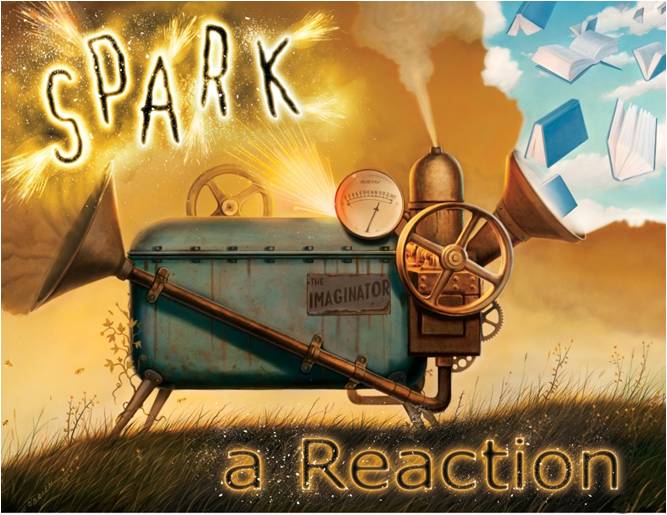 The Children’s and Teen/Tween clubs have a science theme that fits into the emphasis being placed on STEM education in schools. Many of the summer programs and activities planned for these age groups have a science or technology component. To learn more about our summer programs visit the library’s website at, www.wacolibrary.org
The Children’s and Teen/Tween clubs have a science theme that fits into the emphasis being placed on STEM education in schools. Many of the summer programs and activities planned for these age groups have a science or technology component. To learn more about our summer programs visit the library’s website at, www.wacolibrary.org
Sign-up for summer reading clubs begins at all libraries on Monday, June 2, and on Saturday, June 7 the Library will host a Family Fun Day from 1-4pm at the Central Library, 1717 Austin Ave. to kick-off our summer programs. Zooniversity will present a live animal program at 1:30pm and there will be fun for all ages including science experiment stations in the courtyard, teens constructing a 5 foot tall paper rollercoaster, snow cones, crafts and face painting.
 During June and July, support from the Friends of the Library helps provide for weekly Summer Showcase programming programs featuring guest performers at each library:
During June and July, support from the Friends of the Library helps provide for weekly Summer Showcase programming programs featuring guest performers at each library:
- Tuesday, East Waco at 9:30am and 10:30am
- Wednesday, West Waco at 10:30am and 1:30pm
- Thursday, Central at 10:30am and 1:30pm
- Friday, South Waco at 10:30am and 1:30pm
Family Night programming allows children and parents to attend summer showcase programming in the evening:
- Central Library – Tuesdays, June 17, 24 and July 1 at 7pm
- West Waco Library – Thursdays, July 10, 17, 24 and 31 at 7pm
The Angel Paws Reading Buddies program returns for another summer and allows children to practice their reading skills by reading to a furry, four-legged friend. These specially trained animal therapy dogs are great listeners who provide encouragement to reluctant and struggling readers while boosting their self-esteem during a 20 minute reading/craft session. Angel Paws will be at the Central Library on Monday evenings from 6:30-8pm and Wednesday mornings from 10:30am-12:30pm. Contact Vivian Rutherford at 254-750-5952 to schedule a 20 minute session.
For teens and tweens, programs will take place on Tuesday afternoons and Saturday afternoons and will include a variety of hands on science and craft programs. And zombies too!
This past week saw the passing of author and poet Maya Angelou. Of her many, many notable quotes, perhaps my favorite relating to libraries was one during a college commencement address while exhorting the graduates to read voraciously and to never stop learning she stated, “My encouragement to you is to go tomorrow to the library.“
This summer come to the library and – Read, Waco, Read!
 This Act Locally Waco blog post is by James Karney. James has worked in a library since his sophomore year in high school and is the Director of the Waco-McLennan County Library. He enjoys reading biographies, history, and spy/espionage novels. He has been married to the super amazing and talented Anita Karney for 20 years and their son Jamie will complete his sophomore year of high school on Friday – yikes!
This Act Locally Waco blog post is by James Karney. James has worked in a library since his sophomore year in high school and is the Director of the Waco-McLennan County Library. He enjoys reading biographies, history, and spy/espionage novels. He has been married to the super amazing and talented Anita Karney for 20 years and their son Jamie will complete his sophomore year of high school on Friday – yikes!
If you would like to write a post for the Act Locally Waco blog, please contact Ashley Thornton by email at [email protected] .
by Laura L. White, recent Baylor graduate
I may not drive the “coolest” of cars; it is a hefty station wagon that gets me from point A to B in a safe and timely manner. I have always been appreciative of this luxury, but after a recent experience, my appreciation has grown ten-fold.
On a Friday afternoon, I made an appointment at the McLennan Community College (MCC) Family Health Center to get a simple blood test. I decided to take public transportation to get there. The night before, I researched the bus route on the Waco Transit website. Let me just say, I can understand complex Organic Chemistry problems, but I could not seem to understand the bus system! After about 30 minutes I finally decided on my route.
My Spanish class ended at 2:10 pm and I immediately headed to the bus stop on 12th St. According to my research, a bus was supposed to arrive at 2:24, which would take me to the downtown Waco bus terminal by 3:10. From there, I would hop on a different bus line that would take me to MCC. According to these plans, I would arrive by 3:32pm. My appointment was at 4:30, so I thought I had plenty of buffer time.
I was at the bus stop by 2:20pm… and no bus came. Confused, I used my iPhone to call the main bus transit authority. The person who answered the phone explained that the bus I was expecting was not going to be making that stop. He redirected me to a different bus. I had to walk three blocks over and wait for another twenty minutes until the (free) Baylor Blue Line bus arrived.
We drove around the Baylor campus and various students got on and off. The bus then pulled up outside the gas station near 5th St. The bus driver instructed me that this was where I needed to get off to catch the next bus. I waited outside for another ten minutes until the new bus pulled up. I hopped on and asked the driver if he could take me to the main bus terminal. Unfortunately this bus did not stop there, but he said he could take me to within four blocks. He drove for about 25 minutes, then informed me that he was as close as he would be getting to the terminal, so I got off.
I walked the four blocks to the terminal. No one else was there, but I waited hopefully. More people started arriving, and after 30 minutes the bus finally pulled up.
The other two buses I had ridden had been filled with Baylor students. On this bus there were two young women with babies; an older gentleman who had difficulty walking and smelled of body odor and alcohol; a grandmother and her three-year-old granddaughter; and a young family of a mom, dad, and infant son.
Several other people got on the bus at the next few stops. By this point, it was almost 4pm and I could hear my stomach grumbling. I noticed several people pressing the button to request a stop. When the driver pulled over, I realized that we were outside of a McDonald’s. Half of the people on the bus got off at this stop! I always preach the importance of proper nutrition, and I have not eaten at McDonalds in years, but I had a feeling rush over me in that moment that all I wanted to do was to join them.
This experience made me almost ashamed of the lack of challenges I usually face in making healthy food choices. When I go to the grocery store, I purchase only fresh produce, meats, and dairy. Once I have all of my groceries, I load my car and go home. Now I realize how hard that process would be without a car. Carrying more than a few bags would be completely out of the question. And, if you are waiting a long time for the bus in the Texas heat, I’m sure that’s not the best for the milk, eggs, or vegetables you purchased.
As I said, after being on the bus for nearly two hours, I, Laura White who does not eat fast food, wanted nothing more than to stop in McDonald’s. If I were one of the young moms on the bus, eating an inexpensive meal while the children played in the safe environment of the play-area would seem like a completely wonderful plan. Needless to say, I now have a new appreciation of the difficulties people in poverty face when trying to lead a healthy lifestyle.
Finally, I heard the driver alert everyone that we were coming up to the MCC stop. I exited the bus, but having never been to this clinic, I wasn’t sure where it was. I aimlessly meandered through the parking lot until I found a person who gave me directions. I specifically remember her saying as I began walking away, “You definitely don’t want to walk all the way there. It’s really far. Just take your car.” A sinking feeling came over me and I politely responded, “I don’t have one. I took the bus. Thanks for the directions.”
The one thing this experience taught me—understanding. What would have taken me less than twenty minutes in a car, took me two hours and twenty minutes. I took three different buses and I had to walk well over a mile to get to my final destination. I am an able-bodied, well-educated, twenty-one year old woman and I still left this experience with frustration and exhaustion. What if I had a physical disability, or if I were elderly, or if it was a day of extreme weather? I challenge any physician that reschedules a patient’s appointment because of tardiness to rethink what might have led to the patient’s late arrival. There could be more to the story…
Note: The Waco Metropolitan Planning Organization (MPO) is in the process of identifying transportation needs for Metropolitan Waco through the year 2040. They have invited all interested people to make their priorities known. You can submit feedback in writing until June 15. Suggestions may be submitted by fax at (254) 750-1605, by e-mail to [email protected] or by mail directed to Christopher Evilia at the following address: Waco Metropolitan Planning Organization, P.O. Box 2570, Waco, Texas 76702-2570. Please take a moment to urge them to make improving public transportation a priority. Transportation is an important issue for all of us!
 This post was written by Laura White from Warren, NJ. She just graduated from Baylor University in May with a Bachelors of Science in Biology. She remains in Waco, TX for the upcoming year to serve as an AmeriCorps member working within the Family Health Center clinics. After once year of service, she hopes to attend medical school in Texas to ultimately pursue a career in Family Medicine. She was inspired to ride the bus by her experience volunteering at the Family Health Center as a part of her Family Medicine and Community Healthcare Course at Baylor University. If you would be interested in writing a post for the Act Locally Waco blog, please email [email protected].
This post was written by Laura White from Warren, NJ. She just graduated from Baylor University in May with a Bachelors of Science in Biology. She remains in Waco, TX for the upcoming year to serve as an AmeriCorps member working within the Family Health Center clinics. After once year of service, she hopes to attend medical school in Texas to ultimately pursue a career in Family Medicine. She was inspired to ride the bus by her experience volunteering at the Family Health Center as a part of her Family Medicine and Community Healthcare Course at Baylor University. If you would be interested in writing a post for the Act Locally Waco blog, please email [email protected].
by Phil York, Act Locally Waco Housing and Homelessness Policy blogger
Since the post-holiday season, we have used the motif of unwrapping gifts to understand some of the dimensions of housing and homelessness.
We started our discussion with a definition of homelessness through Housing and Urban Development (the federal agency that administers national housing programs). We then discussed how this definition is applied to children, veterans and our other neighbors who may not have a home.
The purpose of our conversation is to keep us all informed: we need to be aware of how decisions made in Washington affect our lives in Waco.
We can use the lessons learned over the past few months and apply them to the latest update from Washington. Let us use our knowledge-base to unwrap:
- The basics of the proposed legislation
- Possible local implications of the proposed legislation
- Ways we can continue our collective efforts to build a stronger Waco
The Basics of the Proposed Legislation:
The U.S. House of Representatives Fiscal Year 2015 Transportation, Housing and Urban Development (THUD) bill is scheduled for House Appropriations Mark-up next week.
Here are the basics about the bill (a paraphrased summary provided by CSH – A Housing Policy and Advocacy Group (www.csh.org )):
- Overall, the House version of the FY2015 THUD Appropriations bill would decrease funding for HUD by $769 million from the FY2014 levels.
- The bill flat funds the Homelessness Assistance Grant programs, providing $2.1 billion. It did not accept the $300 million increase proposed by President Obama.
- There is a slight increase in Housing Choice Voucher program; however, the funding provided does not restore the 40,000 vouchers that were lost to sequestration.
- Funding for the HOME program cut by $300 million.
The U.S. House of Representatives Committee reports specifically about the Community Planning and Development program with the following update in a May press release:
“The bill contains $6.2 billion for Community Planning and Development programs – a reduction of $383 million below the fiscal year 2014 enacted level. The Community Development Block Grant formula program is funded at $3 billion – effectively equal to last year’s level – while the HOME Investment Partnerships Program is funded at $700 million, a reduction of $300 million below the fiscal year 2014 enacted level.
Subcommittee Chairman Tom Latham provided the following commentary about the proposed bill:
“My priorities in this process were to act in a bipartisan fashion to fund our most vital programs with our critical need to reduce the deficit. This is a sound, commonsense bill that meets our highest transportation and housing priorities in a fiscally responsible way. I look forward to working with my colleagues on both sides of the aisle to move this important legislation forward in an open legislative process.”
Possible Local Implications of the Proposed Legislation:
 Waco Habitat is just one of many organizations that partner with the City of Waco to build a stronger Waco with the programs described above. Here are a few ways Waco Habitat used these precious public dollars to improve our community:
Waco Habitat is just one of many organizations that partner with the City of Waco to build a stronger Waco with the programs described above. Here are a few ways Waco Habitat used these precious public dollars to improve our community:
ReStore:
- By using Community Development Block Grant (CDBG) funds through a zero percent loan (that was paid back within three years), the Waco economy has been greatly impacted for the good.
- ReStore offers affordable building materials to people in our community, recycles products thus diverting them from the landfill, and supports administrative efforts of our organization.
- ReStore diverts 3,000 tons from the landfill annually and saves the city about $164,000. The net income from ReStore assures donors to Waco Habitat that 100% of their gift goes to build and repair homes in our community.
New Home Construction Program:
- We are concerned that funding levels proposed in the FY 2015 House THUD bill will make it more difficult for us to serve people living at 30% to 60% area median family income.
- Without HOME funds our partnership housing ministry would be greatly thwarted. Since 1999, Waco Habitat for Humanity has served as a Community Housing Development Organization.
- With over $3.1 million, we have built 48 houses.
- Home ownership assures about seven new home owners join the tax paying roles each year.
- Home ownership adds to the tax base of our community, improves schools, enhances professional opportunities, strengthens school performance, expands likelihood of graduation, and spreads hope for future generations.
Habitat achieved the above accomplishments thanks to our public fund partnerships. Budget cuts today affect Waco’s ability to realize a community where everyone has a decent place to live.
Ways We Can Continue Our Collective Efforts to Build a Stronger Waco:
- Remain informed: The most important call to action is for us to remain informed about the current policy landscape. Regardless of your political background or interest, we share common ground in the preservation and long term health of Waco. Follow the work of the US Committee on Appropriations: http://appropriations.house.gov/news/.
- Have your voice heard: Contact your U.S. House representative. Please provide your Representative with the talking points provided above. If your Representative is Mr. Bill Flores, you have the convenience to contact Rep Bill Flores directly via email (https://billflores.house.gov/contact/ ).
- Connect directly to the mission: There are volunteer opportunities at Habitat and other nonprofit organizations that work directly with our neighbors in need. These organizations offer opportunities for you to give of your time and talent.
Your donations, whether they be of time or money, are important – they bind us together. Once connected, we may share the urgency of the above implications and collectively move our leadership to join us as we build a stronger Waco together.
 Phil York, Director of Development at Waco Habitat for Humanity, is a self-described “policy nerd;” he is also the Act Locally Waco housing and homelessness policy blogger. You can direct questions to Phil to [email protected]. Would you be interested in blogging for Act Locally Waco? If so please email [email protected].
Phil York, Director of Development at Waco Habitat for Humanity, is a self-described “policy nerd;” he is also the Act Locally Waco housing and homelessness policy blogger. You can direct questions to Phil to [email protected]. Would you be interested in blogging for Act Locally Waco? If so please email [email protected].
by Sgt. W. Patrick Swanton, Waco Police Department
As we enter Police Memorial Week here in Central Texas, our hearts are heavily burdened with sadness at yet another loss for our brothers and sisters in Killeen. We can only imagine the sadness our friends are experiencing and send them our deepest and most sincere thoughts and prayers.
The unfortunate reality is that far too many officers are losing their lives in the line of duty. So far in 2014, communities in just the United States alone have lost forty-one Police Officers due to various events. We know that every day we go to work may be our final roll call. But I often wonder…do people realize what it is we are dying for? Have you ever really stopped and thought …why did that officer die?
Let me try to explain what it is that causes us to put ourselves in harm’s way. What it is that makes us run to the sound of gunfire when common sense tells you to run away; what it is that causes us to go down a darkened hallway looking for the deranged individual that just killed his family, or even something that is as simple as stopping a car for a traffic violation at 2:00 in the morning…on a lonely road…not knowing the man in the car had just picked up his monthly supply of meth and knows if he gets arrested he is a three-time loser and goes back to prison forever.
It’s you…our community, our friends and our neighbors. It’s YOU!!! Whether you like us or not, if we know you or not, or even if we have arrested you before; it makes no difference to us as we are tasked with keeping all safe. It is you that we stand watch for every day we wear the badge. It really is just that simple.
We don’t do it for the money, the glory or the occasional free cup of coffee and we certainly don’t do it to be called heroes or to make the local headlines; we simply do it because we believe in right and wrong. We believe that without someone to stand up to the bullies, punks, thugs, and killers in our world, there would be chaos.
No…we are not perfect, not always charming and sometimes not even friendly…but we are always there. We really are just a phone call away and ready to come running in the blink of an eye. I still say this after thirty-four years of policing…Law Enforcement is a noble profession and one I’m proud to be a part of.
We lose sometimes and that’s the most terrible part of this job. That is the one thing that makes this job almost unbearable. For some living in the aftermath, it will be the final straw. Knowing that some heartless, cowardly dirtbag was able to take one of us down leaves us with an incredible feeling of loss that unless you wear the badge or love one of us that does, is difficult to comprehend.
The feeling we get when an “Officer Down” call is dispatched is indescribable and haunts our nightmares continuously. But what is important to know is that we learn. We learn how to get better, we learn how to adjust and we learn how to heal…heal but not forget. And though it is hard to see at times…not one of us goes in vain as we all believe there is a lesson in everything. It’s unbelievable how those blue guardian angels whisper in our ear day in and day out…that doesn’t look right, or that car is out of place, or stay back and watch this guy a few minutes. More often than not they are absolutely right and we live to see another day.
It is paramount that we share our tears with our brothers and sisters in blue but more important than that is the fact that we will rise. We will be back at work tomorrow protecting those that expect it of us and even those that don’t invite it…we will keep watch over our responsibilities and do our best to keep the wolves at bay. And know this…we will never forget those that gave the ultimate sacrifice by giving their lives in the line of duty as we recognize this…John 15:13 Greater love hath no man than this, that a man lay down his life for his friends.
It is a sad time for our friends in Killeen and around the country for those communities that have lost officers in the line of duty. We mourn with you and pray for your healing. We stand together as the first line of defense for our communities and do so proudly.
To our citizens…it truly is you that we serve. Sometimes with the ultimate sacrifice.
 This week’s Blog was written by Sgt. W. Patrick Swanton, Spokesman for Waco Police Department. (Facebook: WacoPoliceDepartment; Twitter: WacoPolice)
This week’s Blog was written by Sgt. W. Patrick Swanton, Spokesman for Waco Police Department. (Facebook: WacoPoliceDepartment; Twitter: WacoPolice)
If you are interested in writing for the Act Locally Waco blog, please email [email protected]
.
Sgt. W. Patrick Swanton
Waco Police Department
by Ashley Bean Thornton and others…
The Greater Waco Community only has a certain amount of money allocated for transportation related expenses. Our city planners are asking to hear from us about how we would like to see it spent. They have invited us to give our input at a series of public information meetings. In a blog post last week, I shared some of my thoughts about transportation and specifically tried to make the case for having more emphasis on public transportation as a part of the overall transportation plan for our region.
Here are some other voices sharing their reasons for wanting a more robust system of public transportation in the Waco area:
(In a letter to the Editor of the Waco Trib)
I read with interest Ashley Thornton’s editorial (May 7) on transportation priorities in Waco, finding it compelling and informed.
As a person who works for an agency that helps older adults, I can affirm with Ashley that we have a public transportation system that is not adequate. Up until 2005, Meals & Wheels had a very busy transportation service which focused on the transit needs of older adults in Waco. However, due to funding shifts our transit program for older adults in the city basically dissolved. We were transporting 249 older adults taking 700 trips per month to clinics, hospitals, doctors’ offices, dentist offices, social service agencies, and dialysis centers.
At that time, it was decided by funding sources that the older adults of Waco could utilize the public transportation system or they could qualify for the ADA (physically challenged) vans. Echoing what Ashley reported, this would require older adults who did not qualify for ADA services, to walk to a bus stop, or flag down a bus, ride it to the hub downtown and then change buses to get where they needed to go.
Think about Waco – in a city that doesn’t have many sidewalks, this required people who were using canes or walkers, or who have mobility issues to walk on uneven surfaces or in the streets. Also, very few of the bus stops in Waco are covered, which means the older adults are at stops that have no protection from the weather. Would you want your mother waiting at a bus stop for an hour in 100 degree heat?
Navigating the bus system is also confusing for many of our older adults. We do not have signage that gives the bus routes. To Waco Transit’s credit, they did send out staff to train our former clients, who requested help, on how to use the bus system. However, I imagine these requests were few in number.
So what did they do without the curb-to-curb service? Many fell back on family and friends to take them where they needed to go. Others, some of whom shouldn’t be driving due to vision issues, drive their own cars. Some of our clients were quite capable of riding the Waco bus and have transitioned to that system. However, we still get calls every week from folks wanted to know if we’re giving rides again; or we receive a call from an adult child saying that their parent needs transit help because they shouldn’t be driving anymore.
I ask that the community lift its voice to say we need a variety of public transit options in Waco and share this need with the Metropolitan Planning District who is/was conducting the meetings on transit needs in Waco. We all have to work together to make Waco a community in which one can age well.
Sincerely, Libby S. Bellinger, Associate Director, Meals & Wheels
(In a response on Facebook to my blog post)
Having a decent, accessible, and reliable public transportation system is so important for any city. Having lived in NYC most of my life, it is something I always took for granted until I moved to Waco. I have many friends who don’t drive; they are lifelong New Yorkers, they have never had cause to learn. There are many reasons we should invest in better public transportation: reducing our city’s carbon footprint, being a more welcoming and accessible city for people with disabilities, attracting employees from large cities where public transportation is the norm, and providing a means of transportation to our neighbors who simply cannot afford a vehicle. There are multiple health reasons why a person may not drive. I have a friend whose sister had no choice but to move to a larger city with public transportation. Her sister has epilepsy, therefore she cannot drive. This person would have been a huge asset to our community. She has multiple graduate degrees, is a community builder, philanthropic, and just a very cool person. One of the interim ministers at a local congregation a few years ago was blind. She simply could not live here. She obviously worked on Sunday, yet was completely dependent on others for a ride, as busses don’t run on Sunday. Most people take health for granted, just as many Wacoans take having a car for granted. What would you do if due to an accident or illnesses you could not drive? Could you get to work? Would you be able to get to the market, medical appointments, place of worship, a friend’s house, anywhere?
— Carmen Saenz
(Another response on Facebook to my blog post)
And now the voice of a really senior citizen. We need affordable ways for seniors to get where they need to go such as to doctors, labs, therapy, grocery are necessary. It would be nice to have some entertainment venues accessible also. It would be nice to have access to library services. Perhaps we don’t contribute to the community from the point of view of many but if we had transportation we maybe could contribute. And, we’d grow older more slowly because of the mental stimulation interaction would provide. And, there is conceivably an undocumented safety issue here. Many seniors continue to drive after it is unsafe because they do not have an alternative.
— Joycie Gifford
If you agree that Waco needs more Public Transportation, please make your voice heard! There are two public input sessions remaining where you can speak directly with the representatives from the Metropolitan Planning Organization (MPO). They are : Monday, May 12, 2014 – 6 p.m. at South Waco Community Center, 2815 Speight and Thursday, May 15, 2014 – 12 Noon at Dr. Mae Jackson Development Center, City of Waco, 401 Franklin Ave.
If you cannot attend either of those meetings, you can submit your written comments directly to the MPO, as long as they are received no later than June 15. Suggestions may be submitted by fax at (254) 750-1605, by e-mail to [email protected] or by mail directed to Christopher Evilia at the following address: Waco Metropolitan Planning Organization, P.O. Box 2570, Waco, Texas 76702-2570.
Also, please consider writing a letter to the Waco Trib to help build up the community engagement around the issue.
Transportation planning is complicated and will involve trade-offs. There is simply not enough money to do everything that everyone would like to do in regard to transportation. Our city planners are asking for our input. If we do not give it to them, how can we expect them to prioritize the things that are important to us?
For more information about the Transportation Plan or the community input process, please visit the website: www.waco-texas.com/cms-mpo .
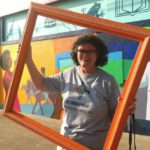 This Act Locally Waco blog post is by Ashley Bean Thornton, the Manager of the www.www.actlocallywaco.org website and the editor of the Friday Update newsletter. The Act Locally Waco blog publishes posts with a connection to these aspirations for Waco. If you are interested in writing for the Act Locally Waco Blog, please email [email protected] for more information.
This Act Locally Waco blog post is by Ashley Bean Thornton, the Manager of the www.www.actlocallywaco.org website and the editor of the Friday Update newsletter. The Act Locally Waco blog publishes posts with a connection to these aspirations for Waco. If you are interested in writing for the Act Locally Waco Blog, please email [email protected] for more information.
My first car was a yellow AMC Pacer complete with an in-dash 8-track player. It was very round and had huge windows. It was like driving around in a big glass egg. Sounds cool right? Coolness (or lack thereof) aside, from the moment I first turned the key in the ignition of that yellow Pacer until this very moment I have never seriously worried about transportation. A few flat tires and other mal-functions notwithstanding, I have always had an operable vehicle and the means to drive it just about anywhere I wanted to go. And, oblivious well-off person that I am, I have always taken that luxury more or less for granted.
According to the Census Bureau’s 2008-2012 American Community Survey 5-year estimates, there are over four thousand households in Waco with no vehicle available. Those of us who have always had cars may have to let the implications of that sink in for a bit before we can even imagine what life without a vehicle would mean on a day to day basis. I have always taken for granted, for example, that I could get to work at any hour that my employer required. If I forgot something I needed, I have always been able to run home at lunch and get it. I have always taken for granted that I could get the milk and ice cream home before it was spoiled. I have never had to think about how heavy my groceries were and whether or not I would be able to carry them all the way home. I have rarely thought twice about being able to drive to the doctor in air-conditioned comfort if I was feeling bad. For households with no vehicles, these “simple” day to day activities require planning and negotiation, and of course the planning and negotiation is made many, many times more complicated if there are kids in the picture.
Our city is designed around the notion that our residents have dependable transportation. For example, many of our children now attend schools in neighborhoods other than their own. Our grocery stores and drug stores are not located in our residential areas. Perhaps even more important, neither are our workplaces. According to a recent report by the Upjohn Institute to Waco City Council, only 4.6% of the people in Waco work in the same census tract where they live. Transportation is not just a matter of convenience. It has consequences for health, education and certainly for employment.
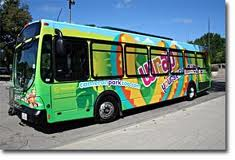 For people who do not have access to a private vehicle, public transit is a lifeline. In Waco that lifeline is pretty thin. First of all, in Waco the bus only comes around once an hour. It only operates during limited hours: Monday through Friday from 5:00 AM to 7:00 PM; Saturday from 6:00 AM – 8:00 PM; no service on Sundays. Also, our bus system is a “hub and spoke” system with all routes radiating from the Transit Center on Eighth street downtown. That means if you need to change buses to travel across town, it could end up taking you more than an hour to get to where you are going.
For people who do not have access to a private vehicle, public transit is a lifeline. In Waco that lifeline is pretty thin. First of all, in Waco the bus only comes around once an hour. It only operates during limited hours: Monday through Friday from 5:00 AM to 7:00 PM; Saturday from 6:00 AM – 8:00 PM; no service on Sundays. Also, our bus system is a “hub and spoke” system with all routes radiating from the Transit Center on Eighth street downtown. That means if you need to change buses to travel across town, it could end up taking you more than an hour to get to where you are going.
All of this has implications for employment. If you depend on public transportation, you can’t, for example, have a job that requires you to work on Sundays. If you miss your bus you could be an hour or more late to work. In recent years, we have added the evening LINK, a limited “reservation only” service that people can use to go to work or school between 8:30 and 11: 45 PM. That service has helped some for people who want to be able to work shifts that end after 7:00 PM, but additional service with shorter wait times would make the bus a much more viable option for getting back and forth to work.
I attended a meeting the other day hosted by Waco Transit in which the speaker discussed some of these realities. At the end of the presentation one of the questions he asked was: “Do you believe there is community and political support to increase public transit in the Waco community?” I hope so, for many reasons. Even though I may never personally have to depend on a city bus, I would like to be able to use it sometimes. Also, I am better off if my community is better off, and I believe my community is better off with stronger public transportation. Our community is better off if people who cannot yet afford a car have a dependable way to get back and forth to work in a reasonable amount of time. Our community is better off if families of modest means can get by with one vehicle instead of having to spend precious resources on a second car. Also, as Waco grows in population (and it will), a good public transit system will help us keep the traffic and congestion to a level that we can all tolerate. (Beware the traffic of Austin, my friends!) Selfishly, as I get older, I imagine there will come a time when I can no longer drive my own car. I believe our community is better off if our seniors have a bus system they can depend on to maintain some level of independence.
The Greater Waco Community only has a certain amount of money allocated for transportation related expenses. Our city planners are asking to hear from us about how we would like to see it spent. They have invited us to give our input at a series of public information meetings to be held at different locations around town during the next few weeks, see the details below. I hope you will attend and let them know that you would like to see some of that money invested in a more robust public transit system.
Here’s the invitation: The MPO staff would like to invite all interested persons to attend any of the following meetings regarding development of the new 2040 Metropolitan Transportation Plan. Monday, May 5, 2014 – 6 p.m. at Hewitt Community Center, 208 Chama Drive. Thursday, May 8, 2014 – 6 p.m. at Lacy Lakeview Civic Center, 505 Craven. Monday, May 12, 2014 – 6 p.m. at South Waco Community Center, 2815 Speight. Thursday, May 15, 2014 – 12 Noon at Dr. Mae Jackson Development Center, City of Waco, 401 Franklin Ave. For more information please visit the website: www.waco-texas.com/cms-mpo .
 This Act Locally Waco blog post is by Ashley Bean Thornton, the Manager of the www.www.actlocallywaco.org website and the editor of the Friday Update newsletter. The Act Locally Waco blog publishes posts with a connection to these aspirations for Waco. If you are interested in writing for the Act Locally Waco Blog, please email [email protected] for more information.
This Act Locally Waco blog post is by Ashley Bean Thornton, the Manager of the www.www.actlocallywaco.org website and the editor of the Friday Update newsletter. The Act Locally Waco blog publishes posts with a connection to these aspirations for Waco. If you are interested in writing for the Act Locally Waco Blog, please email [email protected] for more information.
by Jadi Chapman, Texas Hunger Initiative
If I were greeted everywhere the same way I am greeted when I walk through the doors of Harrison Senior Center life would be a joy. As I enter the senior center every week I am greeted with warmth, love, and a lot of hugs. I sit and talk with the senior citizens as they eat their lunch provided by Meals on Wheels. Every senior wants to tell me his or her story. They want to impart the wisdom they have gained from the Great Depression, the Great Wars, and illnesses that have befallen them and their loved ones. There are countless years of experience in the room, but as a senior shared with me, very few people want to listen to the knowledge gained from those experiences.
In most cultures the elderly are revered and respected. In Asian countries it is of the utmost importance to be respectful and to celebrate the elderly. In Latin culture it is commonplace for many generations to live together under one roof. The United States, however, is very youth-centric.
I had never really thought about issues that older Americans face. They gradually lose their independence as their health begins to fail and the symptoms of getting older set in. As I have gotten to speak with seniors over the past few months I have learned to admire and respect the beauty of aging. The seniors I spoke with are all so grateful and positive for what they have and the life they have lived.
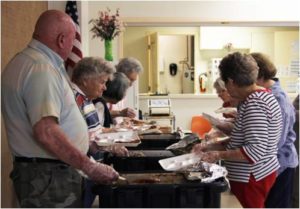 There doesn’t seem to be as much discussion or action around senior issues as there is around other social issues. It is hard to get people to rally around the aging population; people don’t see them as our future but as our past. Hunger among older Americans is something that can be forgotten when addressing food insecurity in the United States. Meals on Wheels serves 15 percent of the over half a million food insecure seniors in Texas. This leaves a substantial number of seniors wondering where their next meal will come from.
There doesn’t seem to be as much discussion or action around senior issues as there is around other social issues. It is hard to get people to rally around the aging population; people don’t see them as our future but as our past. Hunger among older Americans is something that can be forgotten when addressing food insecurity in the United States. Meals on Wheels serves 15 percent of the over half a million food insecure seniors in Texas. This leaves a substantial number of seniors wondering where their next meal will come from.
Because so many factors come into play when attempting to address senior hunger, it is an issue that is better addressed holistically. Some of these factors include:
- Financial insecurity
- Lack of transportation
- Special dietary needs
- Mental illness
Food insecurity among seniors is not simply a matter of not being able to afford to buy food. Sometimes seniors require specialized diets that are difficult to follow on a limited income. Metabolic illnesses, such as diabetes, impact what seniors are able to eat. Large supermarkets can also prove quite taxing for seniors. It takes a lot of energy to walk all over a large, crowded store when suffering from ailments such as arthritis, respiratory problems, or knee and hip replacements.
Alzheimer’s and Dementia can also have an impact on a senior’s nutrition. They may just forget to eat. Even if they have meals delivered, they may put the food in the fridge and then forget it is there. Many times the people who care for people with Alzheimer’s and dementia are seniors themselves. Sometimes these caretakers are so focused on the needs of the patient that they tend to neglect their own nutritional needs. When tackling senior hunger, it is important to approach the issue holistically. Mental, physical and emotional needs must be met in order to increase a senior person’s quality of life.
We were taught to respect our elders and look to them for wisdom, but American society tends to focus on our future instead of looking at our past to guide our future. May is Older Americans Month. Find a way to support the seniors in your community by donating your time to Meals and Wheels or Friends for Life, or by simply by helping the seniors in your community.
 This Act Locally blog post is by Jadi Chapman. She is a Field Organizer at Texas Hunger Initiative’s Waco Regional Office. Her focus is on issues facing seniors accessing food in the Waco community. If you would be interested in writing for the Act Locally Waco blog, please contact [email protected].
This Act Locally blog post is by Jadi Chapman. She is a Field Organizer at Texas Hunger Initiative’s Waco Regional Office. Her focus is on issues facing seniors accessing food in the Waco community. If you would be interested in writing for the Act Locally Waco blog, please contact [email protected].
.

